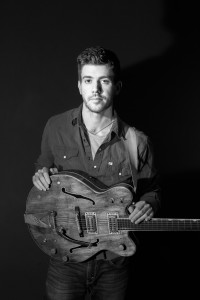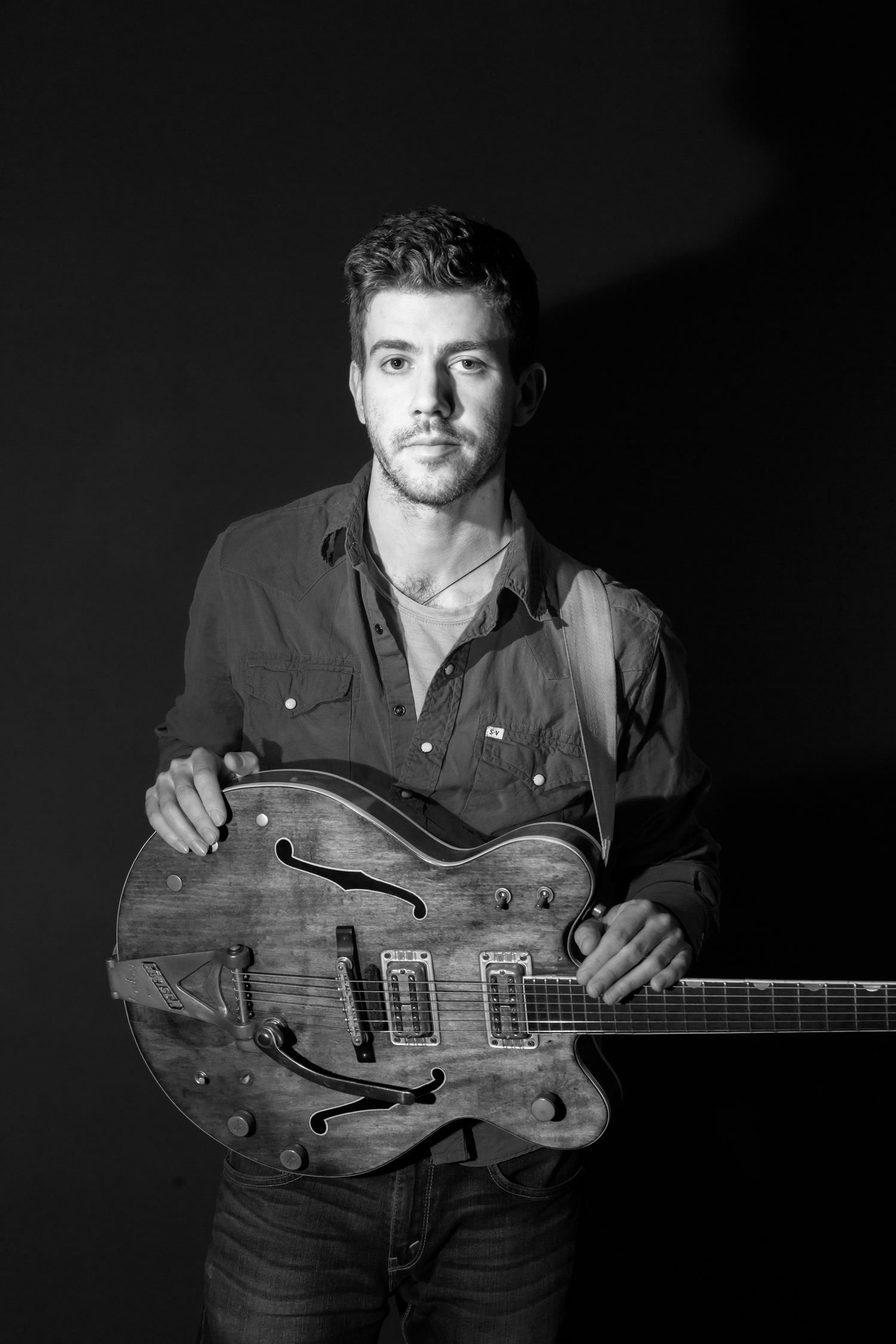Stripped Down And Covered Up: Lyle Brewer’s “Postcards” Interview And Release Show On 5/7
 Lyle Brewer is, perhaps, one of the Boston music community’s most valuable treasures where his often times quiet offstage demeanor and occasional shyness may lead the uneducated to believe. Postcards put 6 albums under the songwriter-guitarist’s belt. Postcards is a love letter of sorts for Brewer, a ‘thank you’ to those songs and artists who have inspired him. The songs that moved him like his own music does to so many.
Lyle Brewer is, perhaps, one of the Boston music community’s most valuable treasures where his often times quiet offstage demeanor and occasional shyness may lead the uneducated to believe. Postcards put 6 albums under the songwriter-guitarist’s belt. Postcards is a love letter of sorts for Brewer, a ‘thank you’ to those songs and artists who have inspired him. The songs that moved him like his own music does to so many.
He celebrates the release of this beautiful work this coming Saturday, May 7th at Yukon Stubblebine‘s shop in Somerville with not one, but two shows that promise to be filled with the brilliant sounds of Lyle’s art ranging from the covers included on his latest release to original compositions and a promise rock set of Bach. You can pick up your tickets to either one of those shows below:
Ticket link for 7pm show: http://www.brownpapertickets.com/event/2543201
Ticket link for 9pm show: http://www.brownpapertickets.com/event/2543491
In the meanwhile we caught up with Brewer to talk a little about the project and release show. Check it out and get out to see this man perform. Witnessing the genius playing pour forth from this man and the enjoyment and love he takes out of playing is one of the most wonderful things you can experience.
————–
RLR: Covering songs is an age old art…or in some cases not so much (for the record, what you have done here is art through and through).
Your version of “Case of You” completely tore my heart out the first time I heard it. What is it that you feel needs to be injected into a song to make it fresh and new and all your own?
LB: Oh man, the Joni version tears my heart out when I hear it! I’m glad I could have a similar effect. “A Case of You” is a good example of an untouchable song. Joni Mitchell’s recording off of “Blue” is perfect in every way. To record an adequate version one must think outside the box. The two best versions I know of are by Prince and James Blake. Both recordings use different instrumentation, harmonies and production techniques than Mitchell’s original dulcimer, acoustic guitar and percussion version. As an instrumentalist, this song was challenging in that the melodies are phrased in a rhythmically free way. I had to make some decisions to straighten out the melody in a few places given the technical demands of the instrument, especially when it comes to the bass. She glides from one pitch to the next and on any fretted instrument it can be very difficult to recreate that effect. I ended up using the technique of phrasing a melody using adjacent strings. Two melodic notes are embedded in a chord rather than playing the melody on one string. Also, Mitchell’s virtuosic ascending runs were especially challenging to work out. I ended up using a technique I learned from Brad Barr (The Barr Brothers, The Slip) where you play a whole scale using open strings to create a harp like effect. So to answer your question, in some ways covering a great song like “A Case Of You” is made easier by playing it instrumentally. The fact that I’m not singing and I’m attempting to imitate her vocal phrasing is unique enough. I really enjoyed arranging this song, and was really freaked out that I’d mess it up. It’s one of my favorite recordings!
RLR: You didn’t just elect to cover nationally or worldly known acts, you’ve tossed in some local flavor as well (which we at RLR can obviously appreciate and relate to). What was the process for choosing songs not just to cover but also to record for this record?
LB: I had a mix of covers to choose from. I’m always working out new versions of standards, originals and covers. The first song, “Let’s Get Lost” by Elliott Smith, I arranged in 2007. I fell in love with the song after buying his album “From A Basement On A Hill”, and found that the melody and chords worked well on guitar. I never quite got it right though. There’s a passage in the verse that involves a quick string skipping technique that I never fully addressed and it kept me from performing it. My decision to finally record it was fueled by an “Okay let’s get this damn song together already!” attitude. Some songs just take time to perfect, whether it’s in the vision and spirit of the song or the technique behind them. Sufjan Steven’s “No Shade In The Shadow Of The Cross” was an obvious choice for me. I love that song and the album “Carrie and Lowell”. The song also lends itself very well to guitar. Dietrich Strause’s song “Spring Has Sprung” was perhaps my favorite song to arrange. Dietrich and I have performed together over the last two years and I am huge fan of his songwriting, not only lyrically but melodically as well. He’s acknowledged as an excellent lyricist, rightfully so, but Dietrich is an all-around fantastic musician. I haven’t heard a song in recent years where the melody captured my attention they way his song did. I am very fortunate to work with Dietrich; he’s a real source of inspiration.
RLR: Your previous record, Juno had some album art that was really cool and I sense a similar theme with this album art. Care to give us some insight on it?
LB: Thank you. That’s all Christopher Delorenzo. He is a fantastic designer and artist. He was the head designer at Johnny Cupcakes for many years and now focuses on freelance design. You can see his work in The New Yorker, Vogue, and many other publications. We went to high school together and he’ll still do my records even though he’s got much heavier clients these days! I try to give him a few ideas about the cover and theme of the album and he takes care of the rest. For Juno I think I said, “I want it to be a snowy street”, that was it. The album art is really important to me especially because the music is instrumental. There are two components to my records: sounds and images. They need to work together. Chris inspires me to be better. His vision is crystal clear and his execution is flawless. I’m very lucky to have him as a designer and a friend.
RLR: So, we understand that you are celebrating the release at Yukon’s place again. What is it about the space that drew you back in?
LB: Yukon Stubblebine has a great workshop in Somerville, which is where we had the record release for “Juno”. I wanted to go back there for this album “Postcards” because it really works for solo guitar concerts. The room is small and holds about thirty people. I like the intimacy of the venue. I like that it’s where I get my instruments worked on and that the space is dedicated to guitar. Yukon is also a great supporter of local music and musicians. I like the fact there’s no booze too! Some venues just feel right and this one does for sure. I’m so glad Yukon has opened his doors to the release show!
Again, get your tickets for that show. An intimate experience with some of the most inspiring playing you can see anywhere!
Ticket link for 7pm show: http://www.brownpapertickets.com/event/2543201
Ticket link for 9pm show: http://www.brownpapertickets.com/event/2543491
Photo credit: Joan Hathaway

